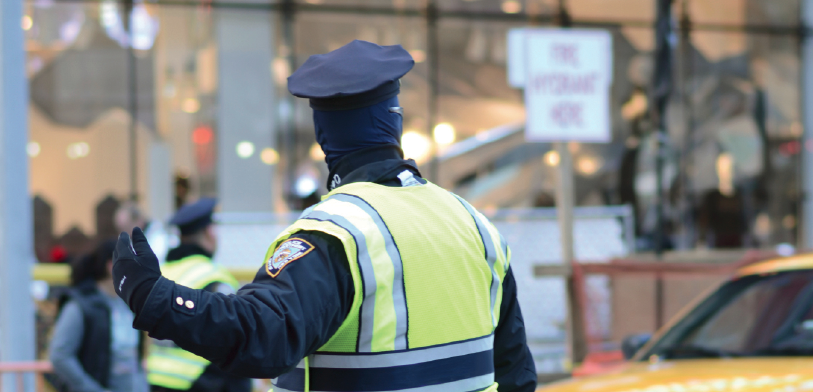By Christy Barritt
Police Officer Gives Sweatshirt to Homeless Man
A New York City police officer was patrolling Manhattan’s East Side when he saw a man who was homeless, Robert William, on the sidewalk. The temperature outside that day was sub-freezing, and William’s boots had gotten wet. When the officer saw him, William was trying to tear off a piece of his shirt and wrap it around his feet to stay warm.
Officer Carlos Ramos, a six-year veteran assigned to the transit bureau’s anti-terrorism unit, knew he had to do something, so he offered William his sweatshirt. William initially wouldn’t accept the shirt, concerned that Ramos would be cold.
Ramos said that he felt good when the man finally put on the sweatshirt. When the interaction was photographed by a passerby and went viral, Ramos responded by saying that he hopes it will inspire people to help others with simple acts of kindness.
Bible Belt Contains Highest Concentration of Sinners
Kansas State University caused a stir when they mapped the “Seven Deadly Sins” across America.
Researchers there released a set of maps that showed the areas of the country that have the highest concentration of sin. According to the map, the Southeastern United States, an area often called the “Bible Belt” because of the large number of churches, also has the largest amount of sin per capita.
Each of the seven sins was measured by population research data and geographic science information. Greed, for example, was measured by comparing average incomes with the total number of inhabitants living beneath the poverty
line.
One of the researchers said that he felt the higher concentration in the Bible Belt was in direct correlation to people’s lower incomes in those same areas. The survey labeled pride as the “aggregation of each sin.”
Anti-Trafficking Bill Introduced in Senate
New legislation has been introduced in the U.S. Senate aimed at helping the nation’s child welfare system more effectively identify and combat incidents of sex and labor trafficking of children.
“Strengthening the Child Welfare Response to Human Trafficking Act” would allow current laws to better enable state child welfare agencies to prevent human trafficking of children and serve the needs of children who are victims of human trafficking.
Senator Kay Hagan (D-NC), one of the sponsors of the bill, said, “North Carolina consistently ranks among the top 10 states for human trafficking, and, sadly, most of the victims are children.” She continued to say that the bill will help the children who are the most high risk by providing child welfare employees with the tools they need to identify and support victims.
Hagan also said that approximately 70 percent of children who are trafficked have had previous contact with social services, including foster care, child protective agencies, and welfare agencies.
 Christy Barritt is an award-winning author, freelance writer, and speaker living in Chesapeake, Virginia. She and her husband Scott have two sons.
Christy Barritt is an award-winning author, freelance writer, and speaker living in Chesapeake, Virginia. She and her husband Scott have two sons.
www.christybarritt.com



Comments: no replies